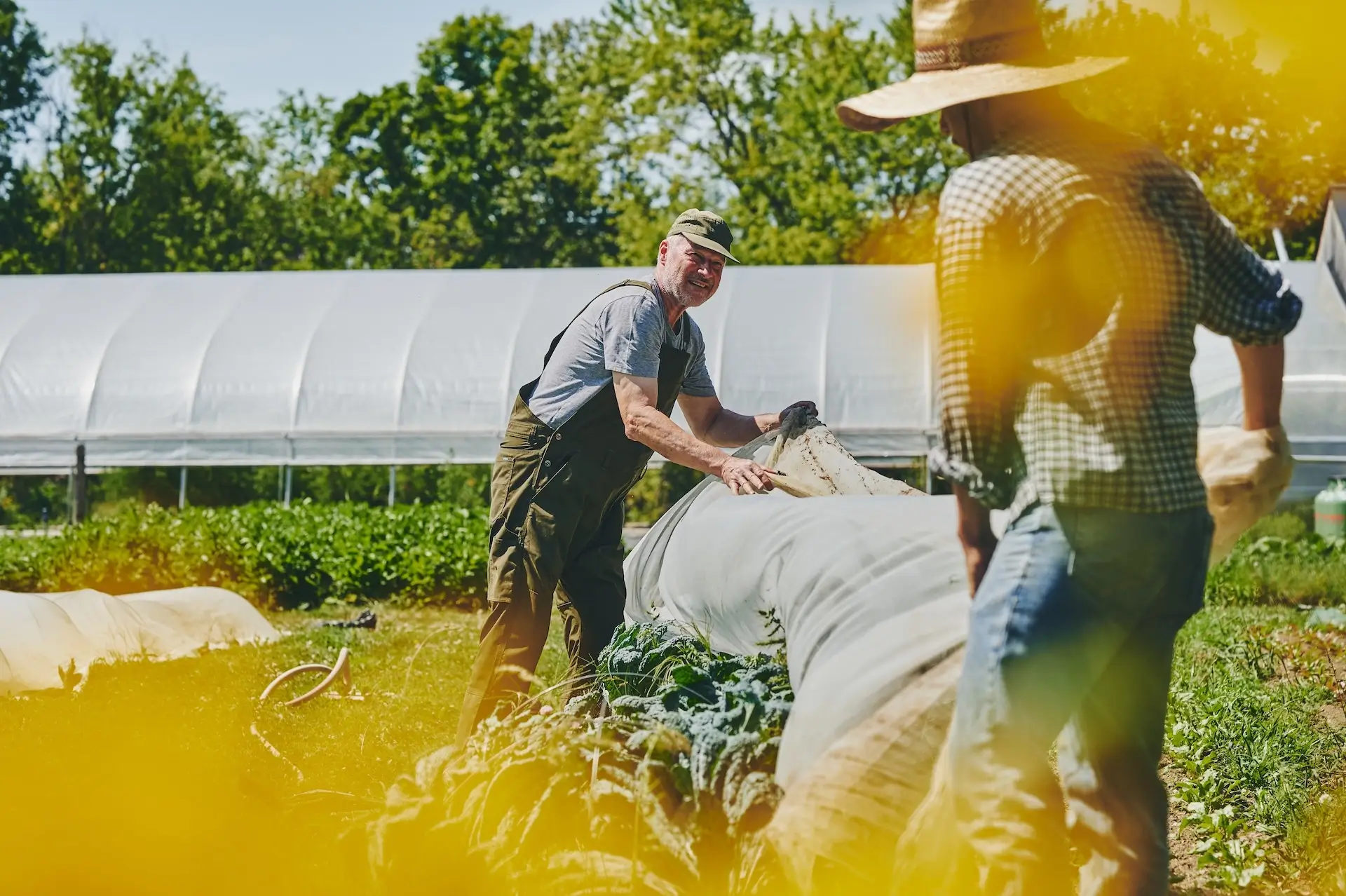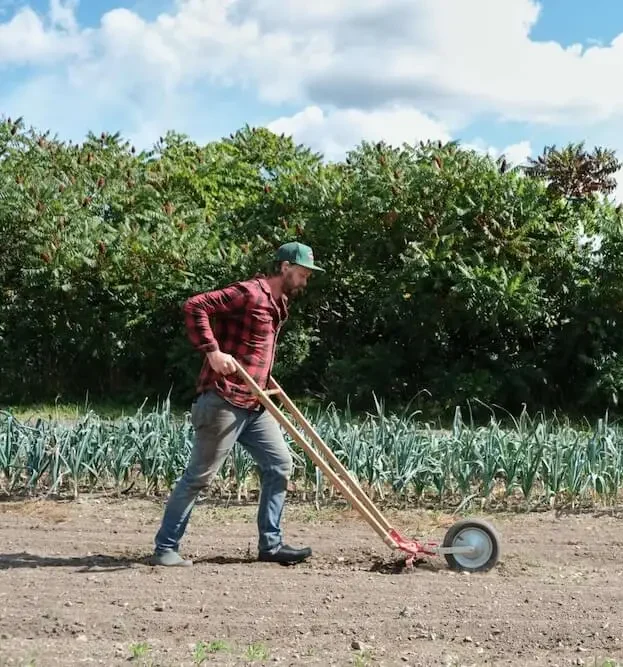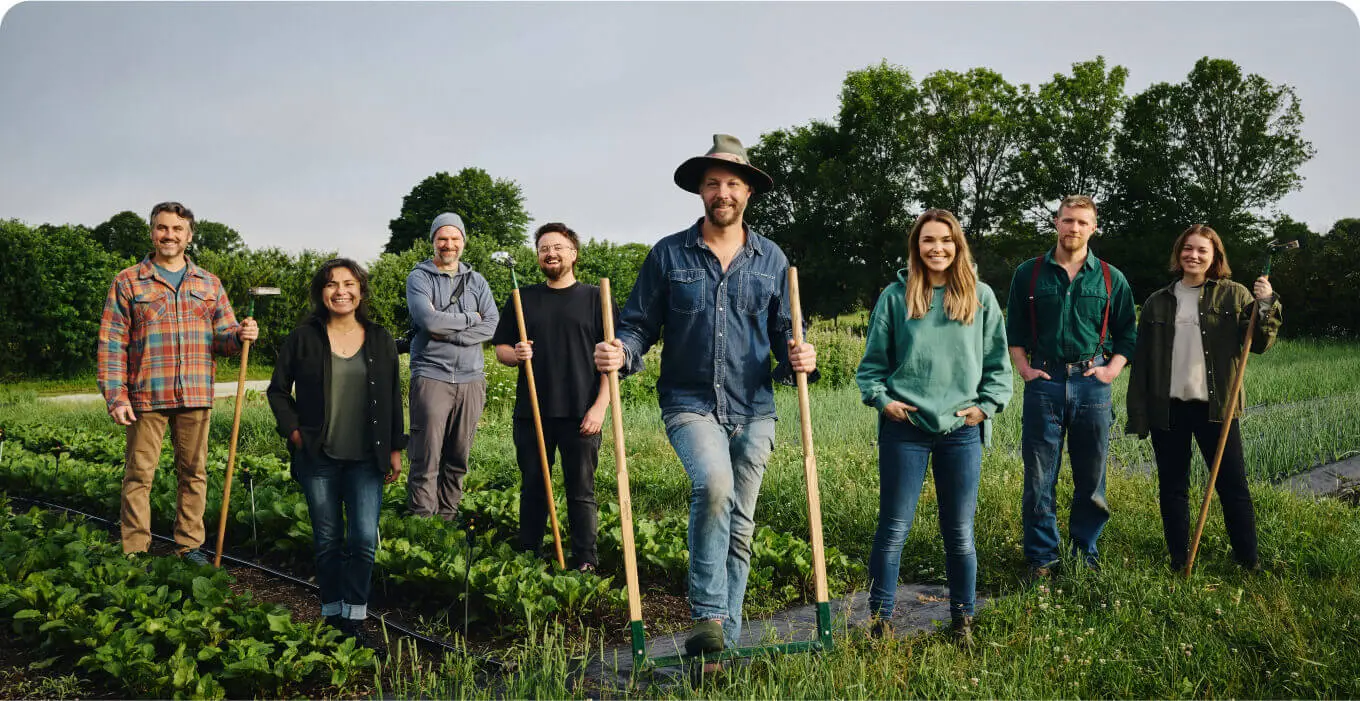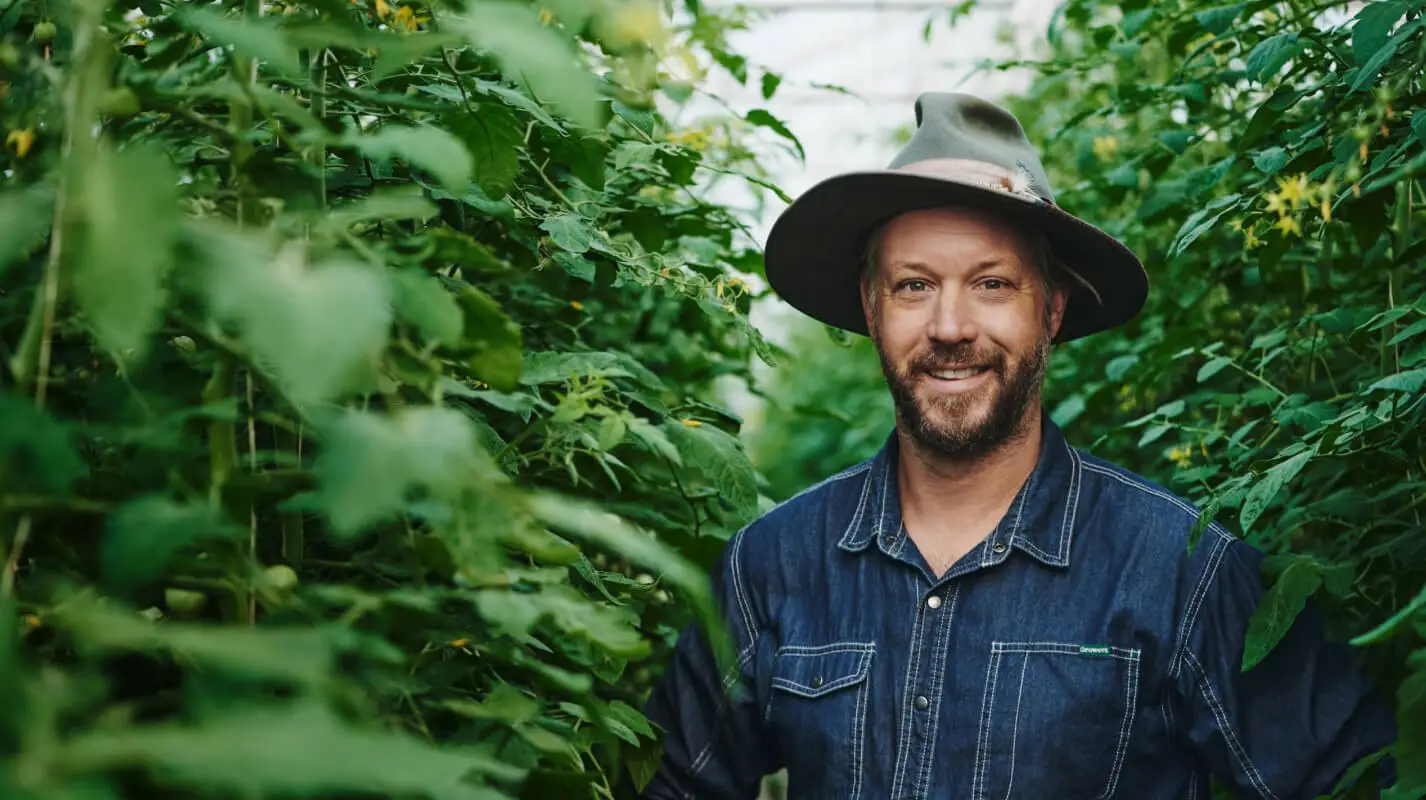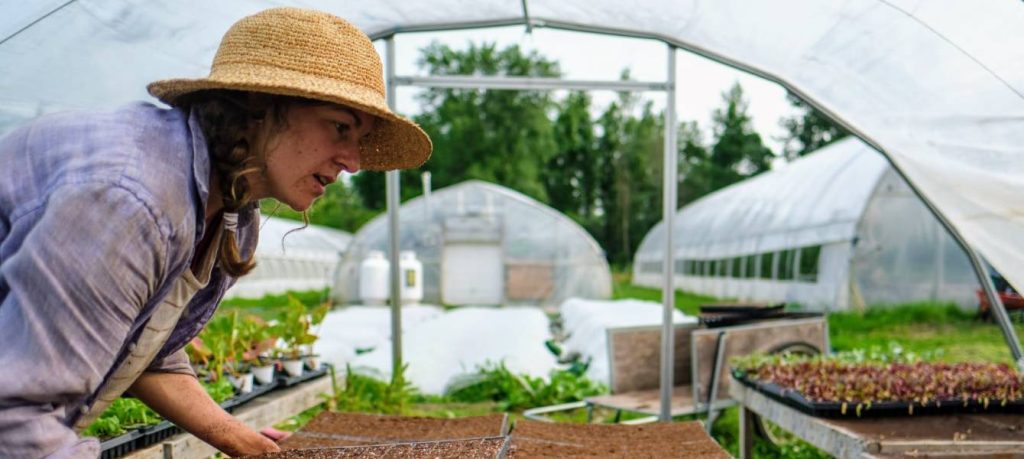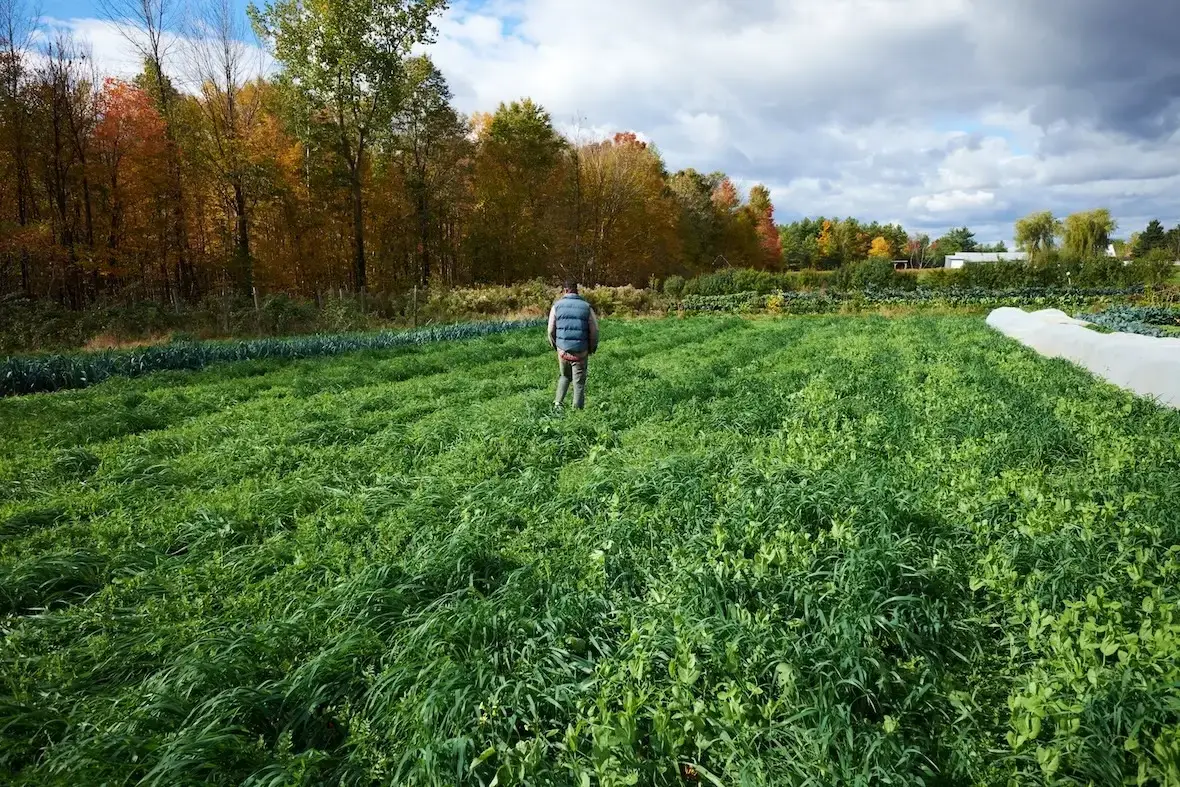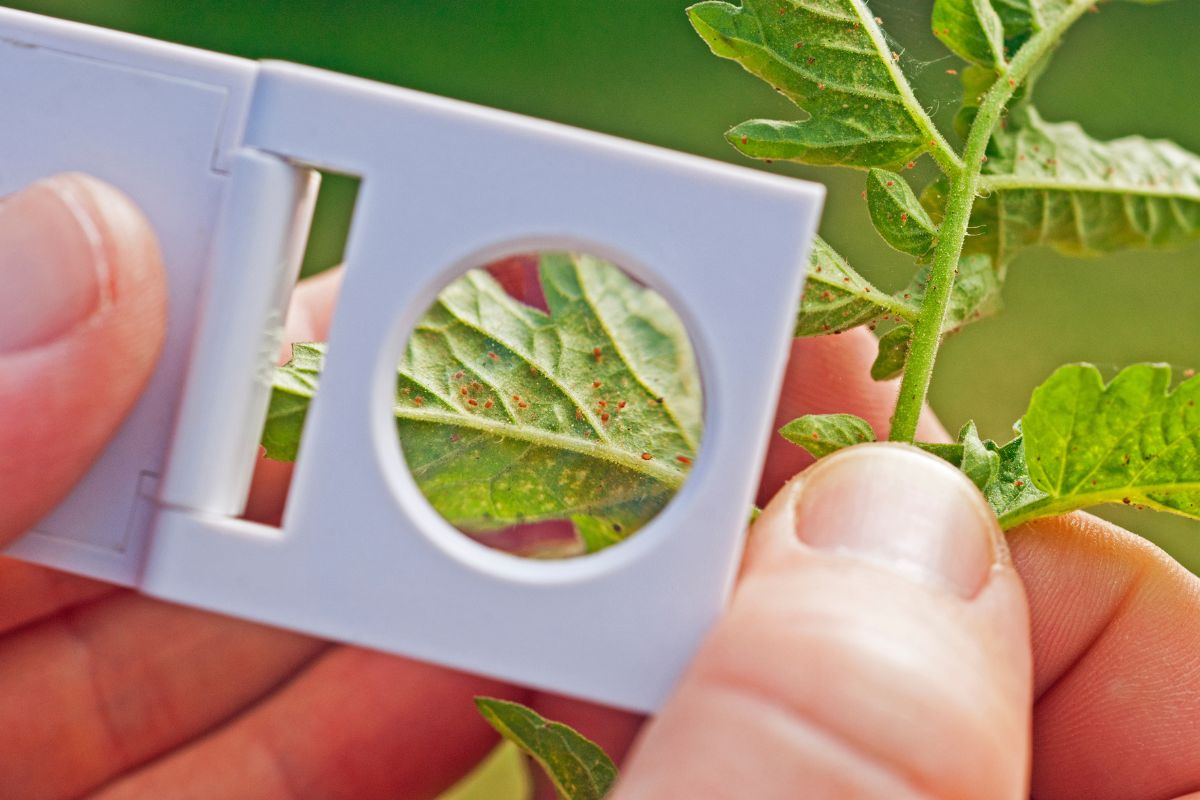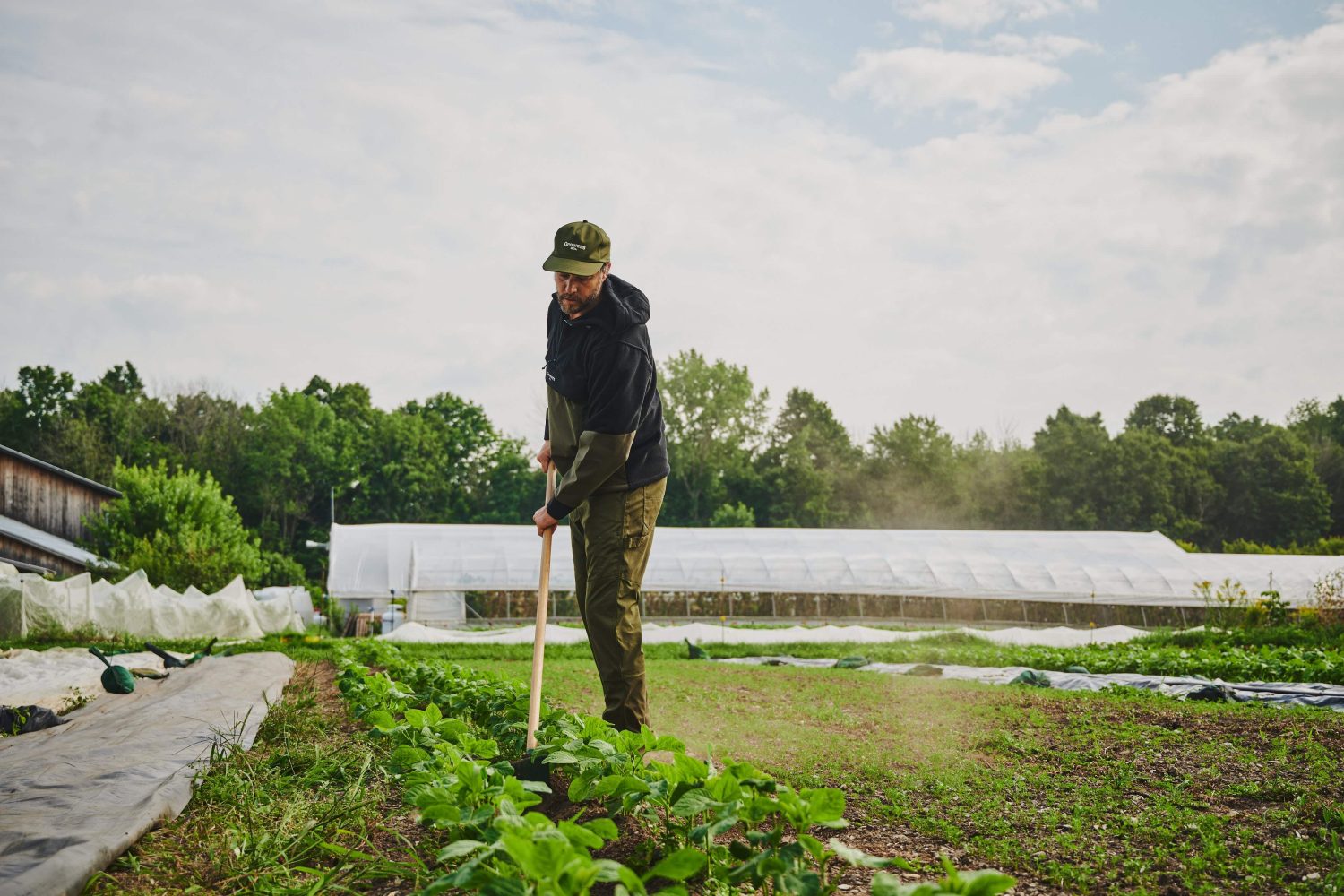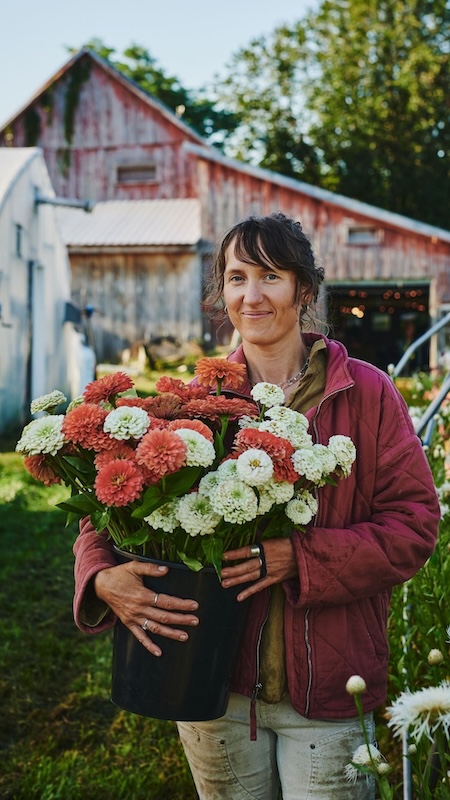Hesitating to start your own organic farm because of a lack of training or knowledge? Based on Jean-Martin Fortier’s approach, we’ve got you covered with these five detailed tips for starting a biointensive small-scale farm.
Tip 1: Gain Practical Farming Experience
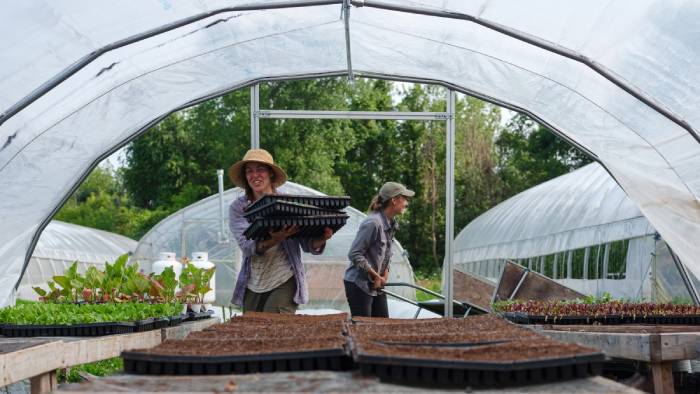
Regardless of the type of farming you want to do, it is strongly recommended to start out by working on other farms.
These initial experiences will give you an idea of whether or not you’re really ready to take the plunge. Are you in good enough physical shape? Can you keep up a good pace in the long term? There’s a big difference between the fantasy of farming and the real thing … and no book or YouTube video can replace direct experience in the field.
In addition, it’s an opportunity to learn from people with more experience in agriculture. Having points of comparison is essential before starting a biointensive small-scale farm. There are several options such as volunteering for a day on a farm, doing a longer internship or becoming a seasonal employee.
Volunteering on a farm
If you are considering a career in organic farming, but are not yet available to pursue it full-time, opt for an informal internship with nearby farmers. Small farms often take on volunteers for occasional help. You can connect with them at local farmers’ markets or through the Community Supported Agriculture farm directory.
Ferme des Quatre-Temps regularly welcomes groups of volunteers at key moments in the year, such as the garlic harvest. Volunteering is a great way to get a sense of what a workday on a farm is like – and to cultivate your relationship with local farmers. It is precious knowledge to gain before starting a biointensive small-scale farm.
Agricultural internships or WWOOFing
World Wide Opportunities on Organic Farms (known as WWOOF) is an organization that connects volunteers with farms around the world. This network of organic farms allows millions of “Wwoofers” to travel each year while lending a hand to farmers. It’s a sustainable way to travel while also gaining valuable experience – which is definitely in line with the market gardener philosophy. Many farms also offer unpaid internships in exchange for room and board.
Engaging in seasonal employment
Working throughout a year as a full-time farm employee is by far the best way to learn the day-to-day work of a farmer. As the seasons change, you follow accordingly: from spring sowing, to summer harvesting, to preparing garden beds for winter.
That’s how Jean-Martin and his wife Maude-Hélène began working in agriculture. They started in New Mexico where they worked and travelled for a whole year, before returning to Quebec to launch their own farm on rented land.
Usually, farmers hire staff with some experience, but it all depends on the local context. No matter your level of farming expertise, enthusiasm is your best asset! With an open mind, a positive attitude, and goodwill, anything is possible.
Tip 2: Build a Solid Business Plan
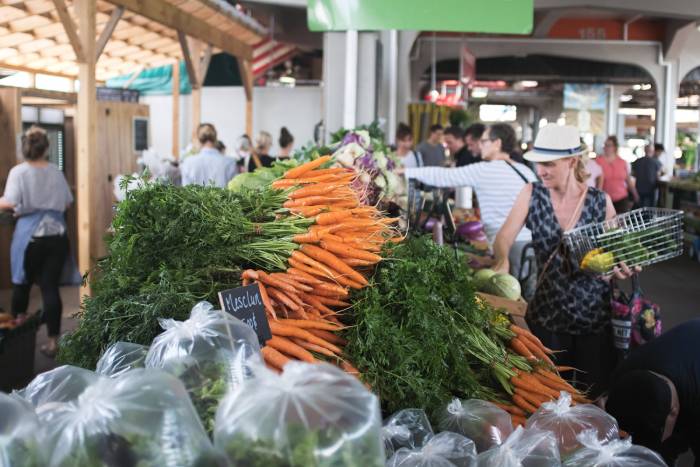
Idealism should go hand-in-hand with rigour and organization. Before you can earn your livelihood by growing healthy food, you’ll have to take the commercial aspect of your farm seriously. Having a business plan and good financial management can turn your hobby into a sustainable business. It’s often imperative for securing a bank loan or any other kind of financing.
A business plan is a written document containing your business objectives, methods for reaching these objectives, and the deadlines for achieving them. It introduces the project, the financial projections, and the strategies you will deploy to reach these financial goals. This document will serve as your roadmap.
Jean-Martin suggests that you develop your business plan during the winter months, or when you’re doing internships at other farming operations. Do not hesitate to ask your peers for help, or to turn to professional agricultural consultants for advice. The good news is that there are many resources available. Some are free or paid for by non-profit groups or by local public sector organizations.
Another advantage of developing a business plan is that it’s good training in administrative tasks (which are essential to the management of a small, organic farm). Keeping a watchful eye on the money coming in and going out can make the difference between the success or failure of your operation.
Tip 3: Plan the Layout of Your Site before Starting a Biointensive Small-scale Farm

There are many things to consider before choosing farmland and once you have found the perfect site, you need to think about how it will be developed. The spatial design of your farm will determine not only the efficiency of your operation but also the quality of your daily life. The layout is what will allow you to organize different workspaces – inside and outside—to ensure that the workflow is as efficient, practical, and ergonomic as possible. From Jean-Martin’s perspective, this principle is especially important.
Once you’ve found your site, get a bird’s eye view using tools like Google Maps. Locate and place all the elements of your operation as precisely as possible. Then it’s time to think strategically. How will you want to move between different areas? Where will you have to walk to fetch a tool in the field, or go to the washroom? Only after you’ve answered all these practical questions can you position the beds, greenhouses, washing stations, tool shed, etc.
Tip 4: Take Care of Your Sales Channels
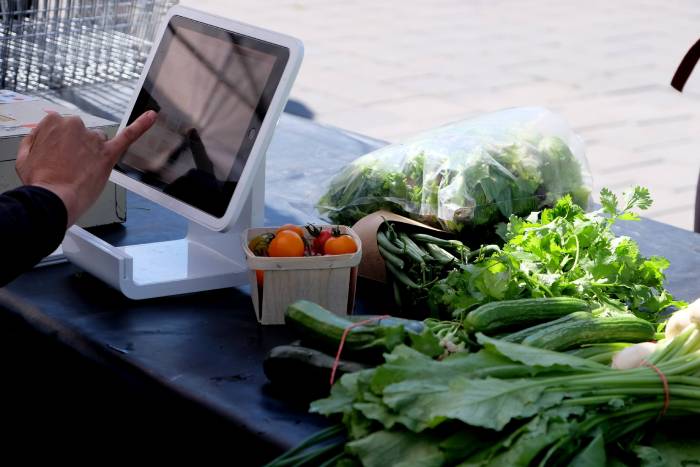
What are the sales channels available for distributing your produce? Direct sales such as community-supported agriculture (CSA) and farmers’ markets, or sales to restaurants, etc. Before planning your farm, meticulously map out your potential sales outlets.
Selling directly to consumers allows you to recoup some of the profits usually pocketed by distributors and wholesalers. Most grocery stores or food markets take between 35 and 50 percent of the sales price, on top of the distributor’s share (between 15 and 25 percent) for the transportation and handling of products. In short, a loss of two thirds of the price of your harvests… that you could have avoided with direct sales!
Never underestimate the importance of networking. Start by talking about your operation with those around you, whether it’s in your region, community networks, or your current or former workplace. Create a waiting list and use it to ask your prospective customers what they would like in their organic food baskets. Meet chefs in your area to ask them what products interest them. Visit farmers’ markets to get advice from other producers about the types of products and sales volumes to expect.
In other words, study the market! All of these observations will help shape your production plan.
Tip 5: Take Time to Recharge

Last but not least, avoid burnout by learning how to work smarter. Working overtime in order to have a clear conscience is not sustainable in the long run. Instead, prioritize efficiency. Above all, take time to rest.
It’s tempting when starting a farm to try to do everything and to work tirelessly, week after week. That is a mistake.
Jean-Martin’s most frequent advice to the start-up farmers he advises is to never work seven days a week. He recommends taking one full day off each week. This gives you a chance to recharge your batteries and have the energy necessary to keep working productively throughout the year. You can accomplish more in six days of good work than in seven days when you’re fatigued.
Don’t forget: if you don’t set limits, you risk becoming exhausted and having to give up on your dreams.
Choosing to Farm as a Way of Life
If you’re dreaming of starting a biointensive small-scale farm, we’ve put together an Introduction to market gardening course specifically designed to give you the basics of how to do it. If you are ready to start your own market garden and are looking for more advanced information, join the Market Gardener Masterclass. The Masterclass is an online course that teaches the most effective and proven techniques to successfully operate a diversified small-scale farm. They will guarantee you consistent results, as well as help you make the most of your valuable time and keep your body in shape for years to come.


